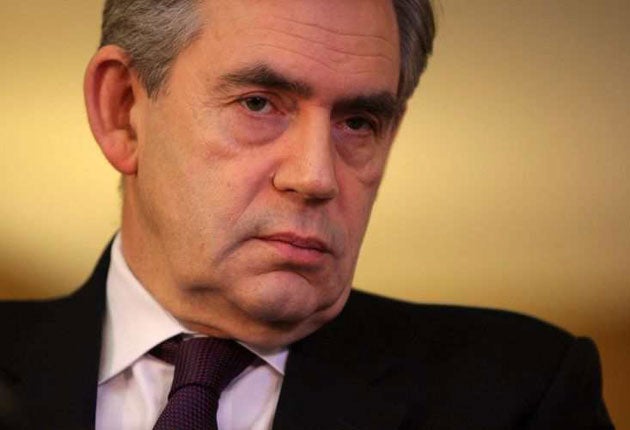Andrew Grice: Role of the state is defining question for 2009
Inside Politics

On the surface, the economy will dominate politics in 2009, but the big underlying issue will be the role and size of the state. All around the world in 2008, governments intervened before breakfast, lunch and dinner.
A fiscal stimulus here, a bank rescue there, and there is much more to come when Barack Obama takes the reins. Things have moved so fast in a momentous year that British politicians don't know whether the huge dose of intervention by government – the only body which could have saved the banks – was a one-off or whether the boundaries have been redrawn for good.
Labour left-wingers sense a permanent change and have a spring in their step. Some quip about the need to bring back Clause IV of the party's constitution, the commitment to public ownership slaughtered by Tony Blair in 1995.
Their hopes will be dashed. True, Gordon Brown announced a 45p in the pound top rate of income tax on earnings above £150,000 a year. But it was done to reassure the financial markets the Government would eventually balance the books, not to whack the fat cats who work in them.
All the same, ministers admit the economic crisis will tip the scales in favour of more state intervention. Money will be ploughed into other strategic sectors deemed vital to the economy's long-term future. More action on the banks will be needed early in the new year to get credit flowing to business.
Some New Labour folk admit they have been too cautious in limiting the role of the state since 1997, and overcompensated for the mistakes of previous Labour governments to reassure the City and big business. A correction is now underway, but the pendulum will not swing as far as the Labour left would wish. New Labour figures claim their pitch of "markets where possible, government where necessary" is still relevant, even though the goalposts have moved.
In two speeches this month, the Business Secretary, Lord Mandelson, called for "smart strategic government" which boosts competitiveness and social justice and a "new industrial activism" based on "market pragmatism" rather than Old Labour's desire to "pick winners". Yes, the new boundaries remain a bit fuzzy, but at least he has made a start at defining them.
Mr Brown, widely seen as a "big state" control freak by his opponents, is probably better suited to the new times than Mr Blair. Ministers feel that Labour is the natural party of the bigger government that is inevitable. They are convinced the Tory Opposition is in the wrong place: by opposing the fiscal stimulus, ministers believe, David Cameron shows this party's true laissez faire colours, out of tune with both the needs of the hour and his own modernising message. Labour regards a once-clever Tory pitch for a smaller state and "post-bureaucratic age" as obsolete.
Not so, insist senior Tories. They are not hostile to state intervention where necessary and accept that tougher regulation may be needed after the banking crisis. In their eyes, it is Labour which is reverting to type. They suspect the voters, whatever their grudging respect for Mr Brown's economic experience, will not like his "big brother" instincts – especially if his top-down measures fail, leaving taxpayers with a crushing bill for his borrowing binge.
Beneath the surface missile fire, the two main parties are urgently reviewing the role of the state. Some cabinet ministers believe the squeeze on public spending after 2010 will require a much smaller Whitehall and a genuine devolution of real power to frontline public services. Liam Byrne, the Cabinet Office minister and a former management consultant, is trying to change a culture of public service performance targets long past its sell-by date.
Public sector workers will be rightly sceptical. They have heard brave talk about central government "letting go" before, yet services remain distorted by obsessive box-ticking. But Mr Byrne is a key player in Team Brown and he is serious about reform. When Mr Brown was Chancellor, the Treasury and Cabinet Office (virtually part of 10 Downing Street) were rival power centres which squabbled over public services. Today they are working together on a new regime. Expect Labour to produce some dramatic efficiency savings – setting a trap for the Tories, who have promised to deliver even more so they can keep their promise to spend less than Labour.
The role and size of the state will be a very big question in 2009 – not least because we are in such a state as it begins. As the politicians try to find the answer, they will have another very challenging year.

Join our commenting forum
Join thought-provoking conversations, follow other Independent readers and see their replies